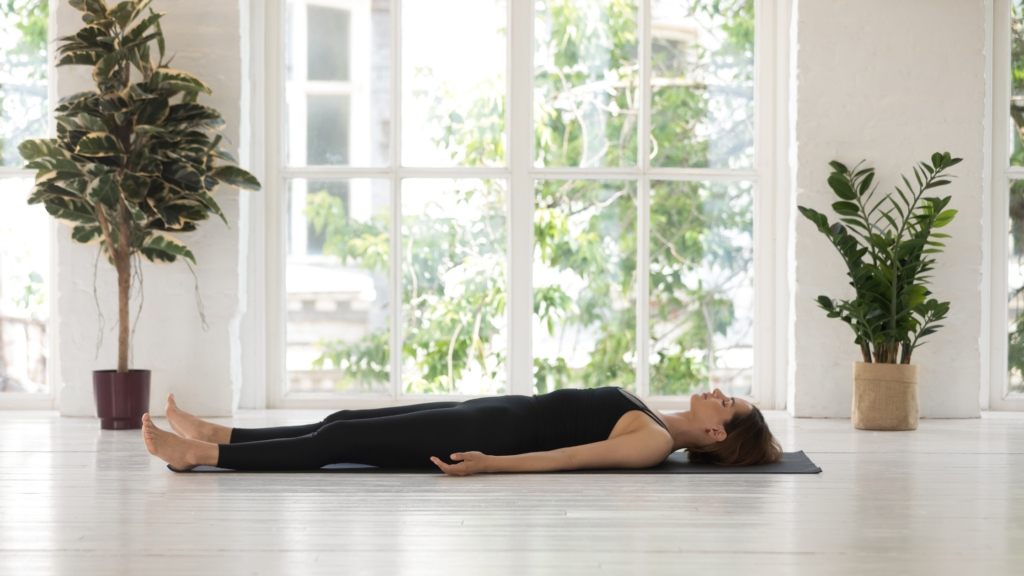Autoimmune diseases are a diverse group of conditions where the body’s immune system, which is designed to protect against harmful invaders, mistakenly attacks its own healthy cells and tissues. This abnormal immune response can lead to a range of debilitating conditions, such as rheumatoid arthritis, lupus, multiple sclerosis, and inflammatory bowel disease, among others. According to the American Autoimmune Related Diseases Association (AARDA), approximately 50 million Americans, predominantly women, suffer from autoimmune diseases, making them a significant public health concern.
While traditional medical treatments remain crucial for managing autoimmune diseases, there has been a growing interest in complementary therapies that can support and enhance the overall well-being of individuals living with these conditions. One such therapy gaining popularity is yoga. Originating in ancient India, yoga is a holistic practice that combines physical postures, breath control, meditation, and ethical principles to promote harmony between the mind, body, and spirit.

Autoimmune Diseases and How They Affect the Body’s Immune System
Autoimmune diseases occur when the immune system, which is designed to protect the body from harmful invaders like bacteria and viruses, mistakenly identifies its own healthy cells and tissues as foreign and launches an attack against them. Normally, the immune system’s response is carefully regulated to prevent this kind of self-attack. However, in autoimmune conditions, this self-regulation breaks down, leading to chronic inflammation and damage to various organs and tissues.
In a healthy immune system, immune cells produce antibodies and specialized immune cells that target foreign substances, like pathogens, to protect the body. In autoimmune diseases, the immune system becomes confused, and these immune cells mistakenly recognize normal body tissues as invaders. This triggers an immune response that results in inflammation and damage to the affected organs or tissues.
Autoimmune diseases can affect virtually any part of the body, leading to a wide range of conditions, each with its unique set of symptoms and complications. Some common autoimmune diseases include rheumatoid arthritis, systemic lupus erythematosus (lupus), multiple sclerosis (MS), psoriasis, celiac disease, and inflammatory bowel disease (IBD).
Common Symptoms and Challenges Faced by Individuals with Autoimmune Conditions
The symptoms of autoimmune diseases can vary widely depending on the specific condition and the affected organs or tissues. However, some common symptoms experienced by individuals with autoimmune conditions include:
- Fatigue: Persistent and overwhelming fatigue is a frequent complaint among those with autoimmune diseases, often affecting their ability to perform daily activities.
- Joint Pain and Swelling: Many autoimmune conditions, such as rheumatoid arthritis, can cause joint pain, stiffness, and swelling, leading to reduced mobility and discomfort.
- Skin Issues: Skin manifestations like rashes, redness, and sensitivity are common in autoimmune diseases such as lupus and psoriasis.
- Digestive Problems: Conditions like celiac disease and inflammatory bowel disease can lead to gastrointestinal symptoms, including abdominal pain, diarrhea, and malabsorption of nutrients.
- Neurological Symptoms: Autoimmune diseases affecting the nervous system, like multiple sclerosis, can cause neurological symptoms such as weakness, numbness, and coordination problems.
- Fluctuating Symptoms: Autoimmune diseases often have a relapsing-remitting pattern, with symptoms that can come and go or change in severity over time.
Challenges faced by individuals with autoimmune conditions include:
- Diagnosis Delays: Autoimmune diseases can be challenging to diagnose as symptoms may mimic those of other conditions, leading to delays in receiving appropriate treatment.
- Managing Flare-Ups: Autoimmune flare-ups can be unpredictable and disruptive to daily life, requiring individuals to adapt their routines accordingly.
- Emotional Impact: The chronic nature of autoimmune diseases can take an emotional toll, leading to stress, anxiety, and feelings of frustration or helplessness.
- Complex Treatment Plans: Managing autoimmune diseases often requires a multidisciplinary approach, involving various specialists and treatments, which can be overwhelming for patients.
- Impact on Daily Life: Autoimmune conditions can interfere with work, social activities, and overall quality of life, requiring individuals to make lifestyle adjustments.
9 Ways Yoga Helps Autoimmune Disease
1. Enhancing Immune Function
-
Positive Impact of Yoga on the Immune System
Research has increasingly demonstrated that yoga practices can have a positive influence on the immune system, which is particularly relevant for individuals living with autoimmune diseases. Several studies have explored the immune-modulating effects of yoga, revealing encouraging results:
a. Increased Circulation of Immune Cells: A study published in the Journal of Behavioral Medicine found that regular yoga practice was associated with an increase in the circulation of various immune cells, including natural killer cells, which play a crucial role in defending the body against viruses and cancerous cells.
b. Reduction of Inflammatory Markers: Chronic inflammation is a significant factor in autoimmune diseases. A study published in Psychoneuroendocrinology revealed that participants who engaged in yoga practices demonstrated reduced levels of pro-inflammatory markers, indicating that yoga may help mitigate the inflammatory response associated with autoimmune conditions.
c. Enhanced Antibody Production: Another study published in the journal Brain, Behavior, and Immunity showed that individuals who participated in a yoga retreat exhibited higher levels of secretory immunoglobulin A (sIgA), an essential antibody that protects the respiratory and digestive tracts against infections.
-
Boosting Immune Response through Regular Yoga Practice
Regular yoga practice can have a cumulative effect on the immune system, helping to strengthen its response to potential threats and maintain a more balanced immune function. Some ways yoga enhances immune function in individuals with autoimmune diseases include:
a. Stress Reduction: As discussed earlier, chronic stress negatively impacts the immune system. By promoting relaxation and reducing stress through yoga, individuals can counteract the detrimental effects of stress hormones on immune function.
b. Improved Lymphatic Circulation: Yoga postures often involve gentle stretching and compression, which can enhance the flow of lymphatic fluid throughout the body. The lymphatic system is integral to immune function as it helps remove waste products and toxins from tissues, contributing to a healthier immune response.
c. Better Sleep Quality: Regular yoga practice has been shown to improve sleep quality, which is vital for overall health and immune function. Adequate rest allows the body to recover and recharge, supporting the immune system’s ability to function optimally.
d. Balancing Hormones: Hormonal imbalances can affect the immune system’s response. Yoga’s impact on hormone regulation can help maintain a more stable hormonal environment, positively influencing immune function.
e. Mind-Body Connection: Yoga’s mind-body approach fosters a deeper connection with the body, enabling individuals to recognize and address early signs of illness or immune system fluctuations promptly.
Overall, by enhancing immune function through stress reduction, improved circulation, and better sleep, yoga can be a valuable ally in managing autoimmune diseases. However, it is essential to remember that yoga is not a cure for autoimmune conditions and should be used as a complementary therapy alongside conventional medical treatments. Consulting with healthcare professionals before starting a yoga practice and tailoring it to individual needs is essential to ensure a safe and effective approach to supporting immune health for those with autoimmune diseases.
2. Reducing Inflammation
-
The Anti-Inflammatory Effects of Yoga
Inflammation is a natural response of the immune system to protect the body from infections and injuries. However, chronic inflammation, which is common in autoimmune diseases, can lead to tissue damage and exacerbate symptoms. Yoga has been found to have anti-inflammatory effects, making it a promising approach in managing autoimmune-related inflammation.
a. Stress Reduction: Chronic stress can contribute to inflammation. As yoga promotes relaxation and reduces stress, it can indirectly help lower inflammation levels in the body.
b. Regulation of Cortisol: Yoga practices have been shown to regulate cortisol, a stress hormone that can trigger inflammation when chronically elevated. By bringing cortisol levels back into balance, yoga can help dampen inflammation.
c. Modulation of Cytokines: Certain studies have suggested that yoga can influence the production and activity of cytokines, which are signaling molecules involved in inflammation. By promoting a more balanced cytokine profile, yoga may help mitigate inflammation.
-
Specific Yoga Poses and Techniques that Target Inflammation
Yoga offers specific poses and techniques that can be particularly effective in targeting inflammation and providing relief for individuals with autoimmune diseases:
a. Gentle and Restorative Poses: Gentle yoga poses, such as Child’s Pose (Balasana), Corpse Pose (Savasana), and Supported Bridge Pose, can help reduce stress and tension in the body, promoting relaxation and a calmer nervous system. By lowering stress, these poses indirectly support inflammation reduction.
b. Forward Bends: Forward bending poses, like Seated Forward Bend (Paschimottanasana) and Standing Forward Bend (Uttanasana), can gently compress the abdomen and massage the internal organs. This may help stimulate digestion and improve gastrointestinal function, reducing inflammation associated with autoimmune-related digestive issues.
c. Twists: Twisting poses, such as Supine Twist (Supta Matsyendrasana) and Seated Twist (Ardha Matsyendrasana), can enhance the detoxification process, which may aid in reducing inflammation by eliminating toxins and waste products from the body.
d. Cooling Breath: Sheetali and Sheetkari Pranayama are cooling breath practices that involve inhaling through the mouth and exhaling through the nose. These techniques are believed to have a calming effect on the body and may help cool down inflammation.
e. Meditation and Mindfulness: Mindfulness meditation, integrated into yoga practice, has been shown to lower markers of inflammation in the body. By fostering a sense of inner peace and relaxation, meditation can contribute to reducing inflammation associated with autoimmune diseases.
It’s important to note that while yoga can help manage inflammation, it may not completely eliminate it. Individuals with autoimmune diseases should work closely with their healthcare providers to develop a comprehensive treatment plan that combines yoga with other appropriate medical interventions. Additionally, modifications to yoga poses may be necessary to accommodate individual limitations and ensure safety, particularly for those with specific joint or mobility issues related to their autoimmune condition.
3. Balancing Hormones
-
The Role of Hormone Imbalances in Autoimmune Conditions
Hormones play a crucial role in the body’s overall functioning, including immune regulation. In autoimmune conditions, hormonal imbalances can contribute to the dysregulation of the immune system, potentially triggering or exacerbating the autoimmune response. Several hormones have been implicated in autoimmune diseases:
a. Cortisol: As the body’s primary stress hormone, cortisol helps regulate the stress response. In chronic stress situations, cortisol levels may become imbalanced, leading to immune system dysfunction and increased inflammation.
b. Thyroid Hormones: Thyroid dysfunction, such as in Hashimoto’s thyroiditis or Graves’ disease, involves the improper production of thyroid hormones. These imbalances can affect metabolism and immune function.
c. Sex Hormones: Hormones like estrogen and testosterone can influence the immune response. Fluctuations or imbalances in sex hormone levels may contribute to the development or severity of certain autoimmune diseases, which are more prevalent in women.
d. Insulin: Insulin resistance, commonly associated with conditions like type 1 diabetes or metabolic syndrome, may lead to inflammation and contribute to autoimmune responses.
e. Melatonin: This hormone regulates sleep-wake cycles and has antioxidant properties. Disruptions in melatonin production, often seen in autoimmune diseases, may impact immune function and inflammatory responses.
-
How Yoga Regulates Hormones and Promotes Balance
Yoga’s impact on hormone regulation can help restore balance and improve overall well-being in individuals with autoimmune conditions:
a. Stress Reduction: Chronic stress can disrupt the hormonal balance in the body, leading to immune dysfunction. Through relaxation and mindfulness practices, yoga can lower stress hormone levels like cortisol, creating a more harmonious hormonal environment.
b. Parasympathetic Activation: Many yoga practices, including pranayama (breath control) and meditation, activate the parasympathetic nervous system, also known as the “rest and digest” system. This activation counteracts the effects of the sympathetic nervous system (“fight or flight”) associated with stress, supporting hormonal balance.
c. Thyroid Function: Specific yoga poses, such as Shoulder Stand (Sarvangasana) and Plow Pose (Halasana), may stimulate the thyroid gland, potentially improving thyroid hormone production and balancing metabolism.
d. Blood Sugar Regulation: Regular yoga practice, combined with mindful eating habits, can help regulate blood sugar levels, reducing insulin resistance and inflammation in individuals with autoimmune conditions related to metabolic issues.
e. Improved Sleep: By promoting relaxation and reducing anxiety, yoga can positively impact the production of melatonin, helping to regulate sleep-wake cycles and improve sleep quality.
f. Hormonal Feedback Mechanism: Yoga’s mind-body approach, particularly practices that encourage self-awareness and self-compassion, may help individuals recognize and address signs of hormonal imbalance, allowing for timely medical interventions.
While yoga can be beneficial in promoting hormonal balance, it is essential to acknowledge that its effects may vary depending on the individual and the specific autoimmune condition. It should be integrated into a comprehensive treatment plan that includes medical care, appropriate medications, and lifestyle adjustments. Before beginning a yoga practice, individuals should consult with their healthcare providers, especially in cases of severe hormone imbalances, to ensure safe and appropriate practices that suit their unique needs.
4. Alleviating Pain
-
Gentle Yoga Practices to Manage Chronic Pain
Chronic pain is a common and often debilitating symptom experienced by many individuals with autoimmune diseases. Yoga offers gentle practices that can help manage and alleviate chronic pain, improving the overall quality of life for those living with autoimmune conditions:
a. Restorative Yoga: Restorative yoga involves supported and passive poses held for extended periods. Through the use of props like bolsters, blankets, and blocks, this practice allows individuals to relax deeply, release tension, and reduce muscle strain, which can be particularly beneficial for managing chronic pain.
b. Yin Yoga: Yin yoga targets the connective tissues, ligaments, and tendons, providing a deep stretch and release. The slow and passive nature of Yin yoga allows for greater flexibility and can help reduce pain associated with stiffness and immobility.
c. Gentle Movement: Gentle and slow movements, often coordinated with breath, are key components of many yoga practices. These movements can help improve circulation, decrease muscle tension, and promote joint mobility, all of which contribute to pain relief.
d. Mindfulness Meditation: Mindfulness practices incorporated into yoga, such as body scan meditations, can help individuals with chronic pain increase their awareness of their bodies and cultivate a more compassionate and accepting attitude toward their pain, reducing the psychological suffering associated with it.
e. Breathing Techniques: Controlled breathing exercises (pranayama) can help individuals shift their focus away from pain and induce relaxation responses. Deep and conscious breathing can calm the nervous system and reduce pain perception.
-
Yoga’s Effect on Pain Perception and Tolerance
Beyond its physical benefits, yoga can have a profound impact on pain perception and tolerance:
a. Neuroplasticity: Regular yoga practice has been shown to induce neuroplastic changes in the brain, leading to altered pain processing and perception. These changes can reduce the brain’s sensitivity to pain signals, potentially alleviating the intensity of pain experienced by individuals with autoimmune conditions.
b. Endorphin Release: Yoga has been associated with increased endorphin release, which are natural pain-relieving chemicals produced by the body. This can lead to a higher pain tolerance and an improved sense of well-being.
c. Stress Reduction: Chronic pain often exacerbates stress, and stress, in turn, can intensify pain perception. Yoga’s stress-reducing effects can create a positive feedback loop, where reduced stress leads to lower pain perception, and vice versa.
d. Enhanced Coping Mechanisms: By promoting mindfulness and mental resilience, yoga can equip individuals with better coping mechanisms to manage their pain and reduce the emotional distress that often accompanies chronic pain.
It is important to note that while yoga can be a valuable tool for managing chronic pain, it is not a substitute for medical treatment or pain management strategies prescribed by healthcare professionals. Individuals with autoimmune conditions experiencing chronic pain should work closely with their healthcare providers to create a comprehensive pain management plan that includes appropriate medical interventions, physical therapy, and lifestyle adjustments, with yoga serving as a complementary approach to enhance overall pain relief and well-being.
5. Improving Flexibility and Joint Health
-
Yoga’s Impact on Joint Mobility and Flexibility
Flexibility and joint health are essential considerations for individuals with autoimmune conditions, as many autoimmune diseases can affect the musculoskeletal system and lead to stiffness and reduced range of motion. Yoga offers a range of practices that can significantly improve joint mobility and flexibility:
a. Gentle Stretching: The gentle stretching involved in yoga poses helps increase blood flow to the muscles and connective tissues, promoting flexibility and reducing stiffness in the joints.
b. Weight-Bearing Poses: Weight-bearing poses, such as standing poses, help strengthen the muscles around the joints, providing greater support and stability to the affected areas.
c. Dynamic Movement: Flowing sequences that incorporate dynamic movements can help lubricate the joints and enhance their range of motion.
d. Prop Use: Props like blocks and straps can assist individuals with limited flexibility or joint issues in achieving proper alignment and maximizing the benefits of yoga poses.
e. Regular Practice: Consistent yoga practice allows for gradual improvement in flexibility and joint mobility over time, making it a valuable long-term strategy for maintaining joint health.
-
Modified Poses for Individuals with Joint-Related Autoimmune Issues
For individuals with joint-related autoimmune issues, modifications to traditional yoga poses are essential to ensure safety and prevent exacerbation of symptoms. Some modifications and considerations for joint health in yoga practice include:
a. Avoiding Deep Twists: Deep twisting poses can strain the joints, particularly in individuals with conditions like rheumatoid arthritis. Gentle twists or partial twists with support can be more suitable.
b. Softening Bends: In poses like Forward Bends or Backbends, individuals can slightly bend their knees to reduce pressure on the joints and lower back.
c. Using Props: Props, such as blocks or bolsters, can provide support and reduce strain on the joints during challenging poses.
d. Limited Weight Bearing: Individuals with joint issues can practice some yoga poses in a seated or supine position to minimize weight-bearing stress on the joints.
e. Consulting with Instructors: Working with experienced yoga instructors who understand joint-related autoimmune issues can help individuals receive personalized guidance and modifications tailored to their needs.
f. Listening to the Body: Individuals should listen to their bodies and avoid pushing into positions that cause pain or discomfort. Instead, they can focus on finding a comfortable edge in each pose.
g. Warm-Up and Cool-Down: Proper warm-up and cool-down routines are crucial for joint health. Gentle movements and stretches prepare the joints for more intense poses and help prevent injuries.
By embracing modifications and mindful practices, individuals with joint-related autoimmune issues can safely engage in yoga, improving flexibility and joint health while minimizing the risk of aggravating their condition. As always, consulting with healthcare professionals before starting a yoga practice is essential, particularly for individuals with severe joint issues or joint replacements, to ensure that the chosen yoga poses and modifications are suitable for their specific needs.
6. Enhancing Respiratory Function
-
Breathing Exercises (Pranayama) and Their Benefits for Autoimmune-Related Respiratory Issues
Breathing exercises, known as Pranayama in yoga, play a vital role in enhancing respiratory function and can be particularly beneficial for individuals with autoimmune-related respiratory issues. Pranayama techniques involve conscious control of breath, which can positively impact the respiratory system in several ways:
a. Increased Lung Capacity: Pranayama practices involve deep, slow, and controlled breathing. This helps improve lung capacity by expanding the lung’s capacity to hold air, which is beneficial for individuals with conditions like asthma or chronic obstructive pulmonary disease (COPD).
b. Improved Oxygenation: Slow and deliberate breathing patterns in Pranayama increase the oxygenation of blood, which is essential for maintaining overall health and supporting the immune system.
c. Reduction of Respiratory Stress: Pranayama techniques promote relaxation and reduce stress, leading to decreased tension in the respiratory muscles and improved breathing patterns.
d. Clearing Airways: Certain Pranayama practices involve forceful exhalations that help clear the airways of mucus and debris, potentially benefiting individuals with respiratory conditions.
e. Parasympathetic Activation: Pranayama activates the parasympathetic nervous system, promoting a state of calm and relaxation. This can help alleviate respiratory symptoms triggered or exacerbated by stress.
-
The Link Between Improved Lung Capacity and Yoga Practice
Regular yoga practice has been linked to improved lung capacity and respiratory function, making it a valuable approach for managing autoimmune-related respiratory issues:
a. Focused Breathwork: In yoga, conscious attention to breath during asanas (poses) and Pranayama helps individuals become more aware of their breathing patterns. This mindfulness can lead to more efficient and controlled breathing, optimizing lung capacity.
b. Encouragement of Deep Breathing: Many yoga practices emphasize deep breathing, encouraging individuals to take full, diaphragmatic breaths. Deep breathing enhances lung expansion and helps clear out stale air from the lungs.
c. Improved Respiratory Muscle Strength: Yoga poses that involve conscious breath coordination engage and strengthen the respiratory muscles, such as the diaphragm and intercostal muscles. This can lead to better respiratory support and lung function.
d. Reduction of Respiratory Stressors: Yoga’s stress-reducing effects indirectly benefit the respiratory system by minimizing stress-induced respiratory symptoms and exacerbations.
e. Enhanced Lung Flexibility: The dynamic movements and stretches in yoga can help improve lung flexibility, allowing for greater lung expansion and increased airflow.
Individuals with autoimmune-related respiratory issues should work closely with healthcare professionals to identify appropriate Pranayama techniques and yoga practices that suit their specific needs. Practicing yoga mindfully, avoiding strenuous exercises that might strain the respiratory system, and focusing on slow, controlled breathing can help individuals experience the respiratory benefits of yoga safely and effectively. As always, seeking guidance from experienced yoga instructors and medical experts ensures a well-rounded approach to enhancing respiratory function for those with autoimmune-related respiratory challenges.
7. Supporting Mental Health
-
Yoga’s Role in Reducing Anxiety and Depression
Yoga has gained recognition as an effective complementary therapy for supporting mental health and well-being. It offers various practices that can help alleviate anxiety and depression, which are common challenges faced by individuals with autoimmune diseases:
a. Mindfulness Meditation: Mindfulness practices in yoga encourage individuals to be present in the moment, observe their thoughts without judgment, and cultivate a greater sense of self-awareness. This can help individuals with anxiety and depression to break free from negative thought patterns and reduce emotional reactivity.
b. Stress Reduction: Chronic stress often accompanies autoimmune diseases and can contribute to anxiety and depression. Yoga’s relaxation techniques and deep breathing exercises promote the release of stress-reducing hormones, fostering a calmer state of mind.
c. Enhancing Neurotransmitter Levels: Some studies suggest that regular yoga practice may influence neurotransmitter levels in the brain, including serotonin and gamma-aminobutyric acid (GABA), which play key roles in mood regulation. An increase in these neurotransmitters can have a positive impact on anxiety and depression symptoms.
d. Mind-Body Connection: Yoga’s emphasis on the mind-body connection can help individuals become more attuned to their emotions and physical sensations. This self-awareness allows for early recognition of mental health challenges, enabling individuals to seek appropriate support and interventions.
e. Social Support: Participating in yoga classes or joining yoga communities can foster a sense of belonging and social support, reducing feelings of isolation and enhancing mental well-being.
-
How Mental Well-Being Influences Autoimmune Disease Management
Mental health and autoimmune disease management are deeply interconnected. The psychological impact of living with a chronic condition can significantly influence the disease’s course and overall quality of life:
a. Stress-Immune Response Relationship: Stress has been shown to affect immune function, potentially exacerbating autoimmune symptoms. High levels of stress can trigger inflammatory responses, leading to more frequent autoimmune flares.
b. Pain Perception: Mental health can influence pain perception. Individuals experiencing anxiety and depression may perceive pain as more intense, affecting their ability to cope with autoimmune-related pain.
c. Medication Adherence: Mental health challenges may impact medication adherence and treatment compliance, affecting the effectiveness of medical interventions for managing autoimmune diseases.
d. Lifestyle Choices: Mental well-being can influence lifestyle choices, such as diet, exercise, and sleep habits, which can impact disease management outcomes.
e. Coping Mechanisms: Effective coping mechanisms and a positive outlook can help individuals better manage the challenges of living with autoimmune diseases, enhancing resilience and overall disease management.
f. Treatment Engagement: Positive mental health can encourage individuals to be more engaged in their treatment plans, leading to better health outcomes and disease control.
Recognizing the close relationship between mental and physical well-being, healthcare professionals are increasingly considering mental health support as an integral part of managing autoimmune diseases. Integrating yoga and other mindfulness practices into the overall treatment plan can be a valuable way to address mental health challenges and promote a more comprehensive approach to autoimmune disease management. Individuals with autoimmune conditions should seek support from healthcare professionals, including mental health experts, to ensure a holistic and tailored approach to both their physical and emotional needs.
8. Promoting Better Sleep
-
Yoga Practices for Improved Sleep Quality
Yoga offers various practices that can promote better sleep and help individuals with autoimmune conditions experience more restful nights:
a. Relaxation Techniques: Yoga’s relaxation techniques, such as Savasana (Corpse Pose) and Yoga Nidra (Yogic Sleep), induce a state of deep relaxation that can help individuals unwind before bedtime and improve sleep quality.
b. Breathwork (Pranayama): Pranayama exercises, like Nadi Shodhana (Alternate Nostril Breathing) or Sheetali Pranayama (Cooling Breath), can help calm the nervous system, reduce stress, and prepare the mind and body for sleep.
c. Gentle Movement: Gentle yoga stretches and movements, particularly those that target areas of tension and stress, can help release physical and mental strain, promoting relaxation and preparing the body for sleep.
d. Evening Yoga Routine: Establishing an evening yoga routine can signal to the body that it’s time to wind down and prepare for sleep. Consistent bedtime rituals can improve sleep patterns over time.
e. Meditation and Mindfulness: Practicing mindfulness meditation before bedtime can quiet the mind, reduce racing thoughts, and alleviate anxieties, leading to a more peaceful and restful sleep.
-
Addressing Sleep Disturbances Associated with Autoimmune Conditions
Sleep disturbances are common among individuals with autoimmune conditions, and managing these issues is crucial for overall well-being:
a. Pain Management: Chronic pain associated with autoimmune diseases can disrupt sleep patterns. Implementing pain management strategies, including yoga and other therapies, can help alleviate pain and improve sleep quality.
b. Stress Reduction: Stress is a significant factor contributing to sleep disturbances. As yoga helps reduce stress and promotes relaxation, it can have a positive impact on sleep for those with autoimmune conditions.
c. Creating a Sleep-Friendly Environment: Practicing good sleep hygiene, such as keeping the bedroom dark, cool, and quiet, can create a conducive sleep environment, helping individuals fall asleep more easily and stay asleep.
d. Consistent Sleep Schedule: Maintaining a consistent sleep schedule, even on weekends, can regulate the body’s internal clock and improve sleep patterns.
e. Limiting Stimulants: Avoiding caffeine, nicotine, and electronic devices close to bedtime can prevent disruptions to sleep onset and maintenance.
f. Consulting Healthcare Professionals: If sleep disturbances persist despite lifestyle changes and yoga practices, individuals should consult with healthcare professionals to identify potential underlying issues and explore additional treatment options.
By incorporating yoga practices into their daily routines and addressing sleep disturbances associated with autoimmune conditions, individuals can enhance their sleep quality and support their overall health and well-being. It is important for individuals to personalize their yoga practice to suit their unique needs and work with healthcare providers to develop a comprehensive approach to sleep management that complements their autoimmune disease treatment plan.
9. Fostering a Sense of Community
-
The Importance of Support Networks in Managing Autoimmune Diseases
Living with an autoimmune disease can be challenging, both physically and emotionally. Support networks are crucial in helping individuals cope with the complexities of managing their condition. These networks provide a sense of understanding, empathy, and shared experiences, which can greatly enhance the overall well-being of those with autoimmune diseases. Some key aspects of the importance of support networks include:
a. Emotional Support: Dealing with a chronic illness can lead to feelings of isolation, anxiety, and depression. Having a support network can offer emotional support, providing a safe space to express feelings and share experiences with others who can relate.
b. Information Sharing: Support networks allow individuals to exchange valuable information about managing their condition, including tips, coping strategies, and experiences with various treatments.
c. Reducing Stigma: Autoimmune diseases are sometimes misunderstood or stigmatized. Being part of a supportive community can create a sense of validation and acceptance, reducing the stigma individuals may face.
d. Empowerment: Connecting with others who have successfully managed their autoimmune conditions can instill a sense of hope and empowerment in those who are newly diagnosed or experiencing challenges.
e. Advocacy and Awareness: Support networks often collaborate to raise awareness about autoimmune diseases and advocate for better healthcare services and resources for those affected.
-
How Joining Yoga Classes Can Create a Sense of Belonging and Mutual Understanding
Yoga classes can serve as inclusive and supportive spaces where individuals with autoimmune diseases can find a sense of belonging and mutual understanding:
a. Shared Experiences: In yoga classes, individuals may meet others who share similar health challenges, fostering an immediate connection and understanding of one another’s experiences.
b. Non-Judgmental Environment: Yoga classes typically emphasize a non-judgmental and compassionate approach, allowing participants to feel comfortable and accepted regardless of their health conditions or abilities.
c. Sense of Community: Regularly attending yoga classes can lead to the development of strong bonds and friendships within the yoga community. This sense of community can be empowering and uplifting for individuals with autoimmune diseases.
d. Modification Options: Yoga classes often offer modifications for various poses, making it accessible for individuals with different health conditions and physical limitations. This inclusivity encourages participation and promotes a supportive atmosphere.
e. Mind-Body Connection: The mind-body focus of yoga encourages self-awareness and self-compassion. This emphasis can help individuals with autoimmune diseases cultivate a positive relationship with their bodies and embrace self-care.
f. Supportive Instructors: Compassionate and knowledgeable yoga instructors can create a safe space for participants to explore their practice, making adjustments as needed to accommodate individual health needs.
By participating in yoga classes, individuals with autoimmune diseases can experience a profound sense of belonging, empowerment, and support. These classes not only contribute to physical well-being but also nurture mental and emotional health, fostering a strong and encouraging community for those on their autoimmune disease journey.
Precautions and Adaptations
-
Consulting with Healthcare Professionals Before Starting a Yoga Practice
Before embarking on a yoga practice, individuals with autoimmune diseases should prioritize their safety and well-being by consulting with healthcare professionals, including their primary care physicians, specialists, or rheumatologists. These medical experts can provide valuable insights and guidance specific to the individual’s health condition, ensuring that yoga is a safe and suitable complementary therapy. Some key reasons for consulting healthcare professionals include:
a. Individual Health Assessment: Healthcare professionals can assess an individual’s specific health needs, medical history, and autoimmune disease status to determine whether yoga is appropriate and identify any potential risks or contraindications.
b. Medication Considerations: Some medications prescribed for autoimmune diseases may interact with certain yoga practices or breathing exercises. Healthcare professionals can adjust treatment plans accordingly to ensure the safety and efficacy of both yoga and medical treatments.
c. Exercise Recommendations: Depending on the severity of the autoimmune condition and its impact on physical abilities, healthcare professionals can provide tailored exercise recommendations and advise on appropriate yoga practices.
d. Injury Prevention: Healthcare professionals can help individuals identify any pre-existing injuries or vulnerabilities that might require modifications in their yoga practice to prevent further damage.
e. Individual Limitations: Healthcare professionals can help set realistic expectations and goals for individuals with autoimmune diseases, taking into account their limitations and abilities.
-
Adapting Yoga Poses and Sequences for Individual Needs and Limitations
Yoga is a highly versatile practice that can be adapted to suit individual needs, making it accessible to people with diverse health conditions and physical abilities. For individuals with autoimmune diseases, adapting yoga poses and sequences is essential to ensure a safe and beneficial practice:
a. Modifications: Yoga instructors can offer modifications to poses, using props or alternative variations to accommodate specific health conditions or joint limitations.
b. Gentle Approach: For those with autoimmune diseases, practicing yoga with a gentle approach can help avoid strain on the body and reduce the risk of injury.
c. Customized Sequences: Yoga instructors or therapists with experience in working with individuals with autoimmune conditions can create personalized sequences that address specific concerns or symptoms.
d. Breath-Centered Practice: Emphasizing breath work and mindfulness in yoga practice can offer benefits without requiring strenuous physical exertion, making it suitable for individuals with varying levels of physical ability.
e. Awareness of Warning Signs: Instructors should be aware of warning signs during yoga sessions that may indicate distress or discomfort in participants, allowing them to adjust the practice accordingly.
f. Open Communication: Individuals with autoimmune diseases should communicate openly with their yoga instructors about their health concerns, limitations, and any changes in their condition to ensure a safe and supportive practice environment.
By taking these precautions and adapting yoga practices as needed, individuals with autoimmune diseases can experience the many benefits of yoga while prioritizing their health and safety. Working in partnership with healthcare professionals and experienced yoga instructors, individuals can create a yoga practice that supports their overall well-being and complements their autoimmune disease management plan.
Encouragement for Individuals with Autoimmune Conditions to Explore Yoga as a Complementary Therapy
If you are living with an autoimmune condition, consider incorporating yoga into your life as a complementary therapy. The benefits of yoga can extend beyond the physical aspects of your health, supporting emotional and mental well-being as well. Engaging in a yoga practice can empower you to take an active role in managing your condition and improving your overall quality of life.
Emphasizing the Importance of Consistent Practice and Self-Care in Managing Autoimmune Conditions with Yoga
Consistency is key when using yoga as a complementary therapy for autoimmune diseases. Regular practice allows you to experience the cumulative benefits and progress in your physical and emotional well-being. As you explore yoga, remember to listen to your body and make necessary adaptations to ensure safety and comfort.
Additionally, self-care plays a vital role in managing autoimmune conditions. Alongside your yoga practice, prioritize rest, healthy nutrition, stress reduction, and open communication with healthcare professionals. By nurturing yourself physically, mentally, and emotionally, you can create a holistic approach to managing your autoimmune disease with yoga.
Remember, yoga is a journey of self-discovery and growth. Embrace your unique experience and celebrate the progress you make along the way. As you cultivate a deeper connection with your body and mind through yoga, you may find new sources of strength and resilience to navigate the challenges of living with an autoimmune condition.
If you are looking for more tips and support, join me over on my group page, The Village – A Natural HEALing Community, to get tons of information and tips to help you take your HEALTHY EATING and ACTIVE LIVING to the next level.
REFERENCES
Yoga Journal. (2021). What Is Yoga? Retrieved from https://www.yogajournal.com/yoga-101/
Mayo Clinic. (2021). Yoga: Fight stress and find serenity. Retrieved from https://www.mayoclinic.org/healthy-lifestyle/stress-management/in-depth/yoga/art-20044733
Harvard Health Publishing. (2018). Yoga for anxiety and depression. Retrieved from https://www.health.harvard.edu/mind-and-mood/yoga-for-anxiety-and-depression
Lee, J.H., et al. (2015). Effects of yoga on inflammatory biomarkers, anxiety, and stress in patients with schizophrenia and metabolic syndrome: A randomized controlled trial. Journal of Psychiatric Research, 68, 213-221. doi: 10.1016/j.jpsychires.2015.06.015
American Psychological Association. (n.d.). Mind/Body Connection: How Your Emotions Affect Your Health. Retrieved from https://www.apa.org/topics/health-mind
Javnbakht, M., et al. (2009). Comparing effects of reflexology and relaxation on pain in women with multiple sclerosis. Journal of Nursing and Midwifery, 19(68), 1-8.





+leave a comment . . .